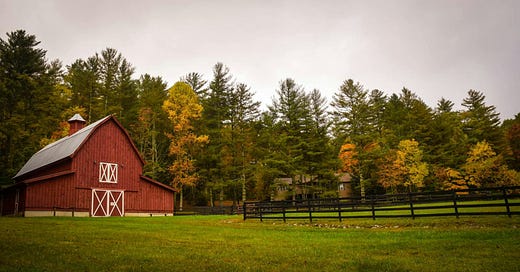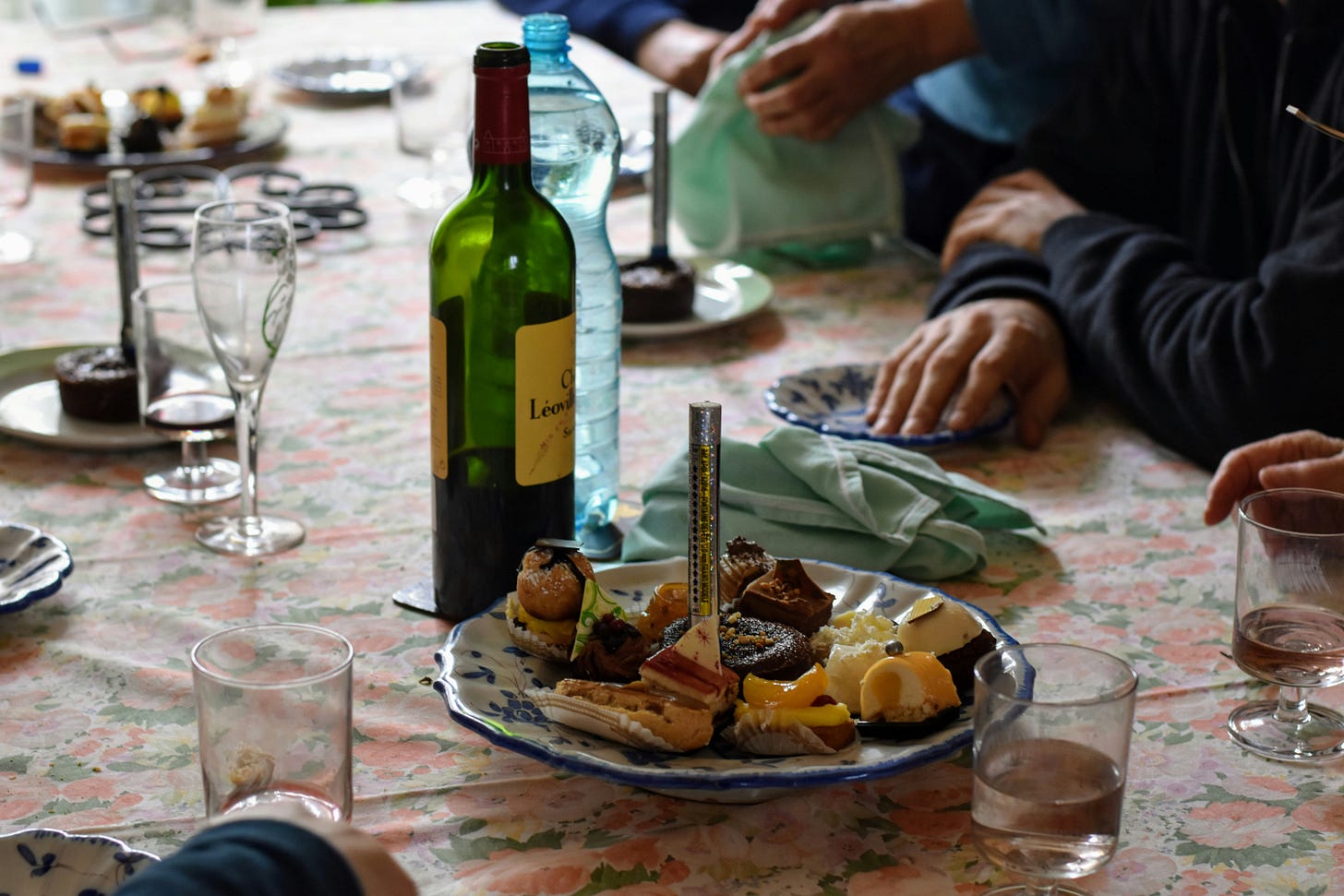Queer Country Wisdom No. 1: A Sacred State
The first question has been submitted to QCW! And it's a good one!
Dear Queer Country Wisdom,
I’ve been living in my rural community for decades, and I’ve noticed a lot of newcomers moving in with different values and ways of doing things (no offense to yourself). I don’t hate all those new values and ways - some of them are actually pretty swell. But I worry that things are changing too fast. More importantly, I worry that the newcomers didn’t so much come here as just leave elsewhere, if that makes sense. I worry that they didn’t come to Vermont to become Vermonters. If they’d have been just as happy in Iowa or the Carolinas or Nevada, why come here? This isn’t Anywheretown, USA - this is Vermont. So…how do I stay true to my roots, quell my anxieties, and help these newcomers feel the sacredness of our state while also welcoming change and new ideas?"
Sincerely,
An Old Timer in New Times
Dear Old Timer,
It’s a tricky thing, isn’t it? The land itself feels timeless, and is, in a sense timeless —you’ve likely been watching the same hills and fields go through their cycles for years. But people…well, we’re always in flux. And you’re right to want to stay true to your roots. Our roots, after all, are what ground us - especially in rural life. They’re the things we can always come back to when everything else feels like it’s shifting too fast.

But I’ve found that, just like in nature, there’s room for new growth alongside old roots. Think of it like the perennials in your garden (and I know you have one - I can feel it in your writing). The established plants have been there for years, steady and reliable, holding the soil in place, supporting life around them…but when a new seedling or two finds its way into the soil, it doesn’t necessarily threaten the established plants—it can actually complement them. The key is in assessing if these seedlings are weeds or beneficial companions, and then making space for beneficial companions in a way that’s symbiotic for the perennials.
Now, far be it from me to say that any human might be considered the equivalent of a weed; I know plenty of folks from away think that way these days…but I like to think that Vermonters (at least, most of us) know better. Even in our gardens, something is only called a weed because we ‘higher’ life forms deem it so - but, all humans being of equal inherent value (as we are), let’s you and I just go ahead and agree that there are no ‘weeds’ in your scenario. And forgive us flatlanders, please - most of us do hope to be ‘beneficials’ in the garden of Vermont, even if we haven’t quite figured it all out yet.
Welcoming newcomers doesn’t have to mean losing what’s important to you. It just means letting new voices and ideas have a place at the table— literally, YOUR table. Kitchen table, dining room table, card table, pub table, fish cleaning table - pick a table. Trust me, they’ll want to be there and be grateful for the invite. Over the years, I’ve found that you can keep the old ways alive while still learning from the new, but it begins with actually talking to folks, and inviting them into your way of life instead of hoping they muster the social courage to knock on your door. Maybe that means sticking to the same traditions you’ve always followed (all-night sugaring, going to deer camp, rolling up your sleeves on Green Up Day, going to Town Meeting - you name it)…but proactively inviting new neighbors into the fold to learn why those things matter to the cultural fabric of Vermont.
Case in point: when my husband and I first moved to Vermont (from Western North Carolina), we weren’t new to snow - but we sure as heck didn’t know what it took to make it through our first Vermont winter. We lived in an old 1870s house with a wood stove (a new thing for us) and an oil furnace that looked like it was from the belly of an ancient ship (definitely a new thing for us). To us, it seemed like all the neighbors had been Vermonters for six generations, and we were afraid of seeming stupid or imposing by asking for winter advice. Luckily for us, one of our neighbors (and now a dear friend), the wonderful poet + photographer Marjorie Ryerson, could tell that we were lost puppies. Marjorie became our “winter mentor” - something all new Vermonters should have, in my humble but correct opinion. Equally importantly, she gave me a copy of Vermont Almanac, which helped me convert the previous homeowner’s oil bill into BTUs of heat and then determine how much firewood I’d need to ensure equivalent BTUs of heat for the season. And you know what? It worked out dang near down to the stick, and I’ve been an ardent Vermonter ever since. Not just a person who moved to Vermont - but a Vermonter. You can help the newcomers near you do and become the same - and you’ll all be better, happier, and Vermontier for it.
Thank you for your question, and good luck, Old Timer!
Warmly,
Jack Thomas
PS: in the interests of full disclosure, I’m on the board of Vermont Almanac…just because I love it so goshdang much and don’t know how I’d be surviving and thriving in Vermont without it.
Thank you for reading To Be a Good Vermonter. If you thought this advice was helpful (or at least entertaining), please subscribe (for free) to receive new posts and support this work. And of course, share it with folks who might enjoy reading it.





